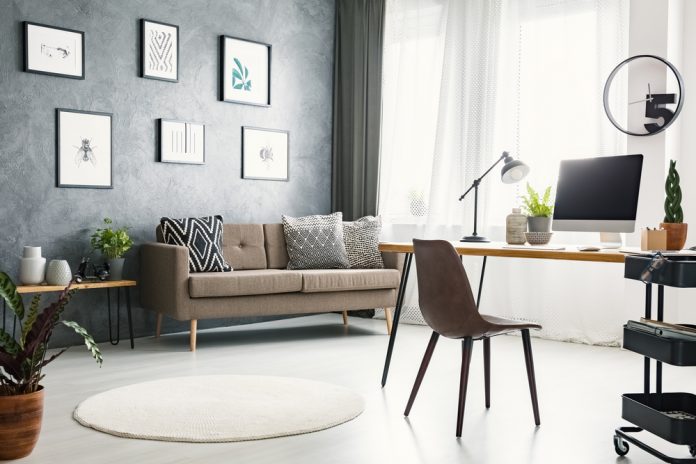A space that is located in a home or residence for business or work purposes is called a home office. It is set up by those who want to work and communicate from home and have become part of thousands of employed and self-employed people. There are things to consider when setting up a home office.
Benefits of a Home Office
In order to ensure efficiency and speed while working at home, you need the right space, proper equipment, good lighting, and a private area to work effectively.
Equipment
It is important to pay attention and buy equipment that you will be using on a daily basis. Having a desk, chair, and table is a necessity. Moreover, invest in high-quality equipment such as a laptop, computer, and printer. It is also important to have a separate phone line that is capable of messaging and has a speaker for conferencing in your home office. The list of equipment that you will buy includes products that you could easily rely on and are quick to use when working.
The items that you are deciding to buy for your home office must be compatible with your health and wellbeing. For example, you are working on a desk in front of a computer and you will be needing a task chair that will make it easy for you to work the entire day. Comfort and convenience are two factors that should be considered when buying objects, especially for work purposes. The body’s needs and areas of support must be taken into consideration when it comes to working. This allows rest and relaxation, will enhance your work experience, and makes your time at work less stressful.
Organizing and Storage
The place where you are more likely to spend most of your time in your home office is at your desk since it is used for most of your work-related duties. An organized desk prevents disorganized papers and missing files. An organized workspace is necessary for productivity and being able to get work done on time.
A quick solution to organizing papers thoroughly is using binders. Binding 101 recommends the use of binders to help keep everything in the correct place. Binders will assist in maintaining notes, memos, business cards, and even your most confidential files. Keeping all materials in place and storing your items will save time and make it easier for you to stay organized.
Choose the Right Space
Privacy should be considered when it comes to planning a home office. To be able to work, there should be no interruptions or noise within the surrounding area. Prevent any disturbances from nearby activities outside and sounds by choosing a home office space that is secluded and quiet so you can concentrate on work. Additionally, choose a home office with at least a window to ensure the best lighting possible during the day.
Lighting
Set up a workspace that has good lighting and offers natural daylight. Balanced lighting is crucial and you must have the most suitable lighting in your work area from desk lamps to your floor lamps. Create an ambiance with sufficient white light and even sunlight that is proportional to the sources of light available around your office.
Purchase a task lighting that is useful for cloudy days, when there is no natural light available, and an energy-efficient light that is suitable for working late at night. Low lighting levels have negative effects in terms of sight, color progression, and mental health. Furthermore, lights with dimmer switches are also effective when it comes to having the ability to control the amount of light, brightness, and intensity.
Organization Is Key
Keeping an organized home office help increase productivity since it saves time looking for specific things and gives more time to focus on important tasks. Things that are labeled and organized in a neat and orderly manner reduce stress since you can locate documents and things quickly. Lastly, meet important deadlines faster and complete tasks ahead of time by being organized.
Find a Home-Based Business to Start-Up >>> Hundreds of Business Listings.














































